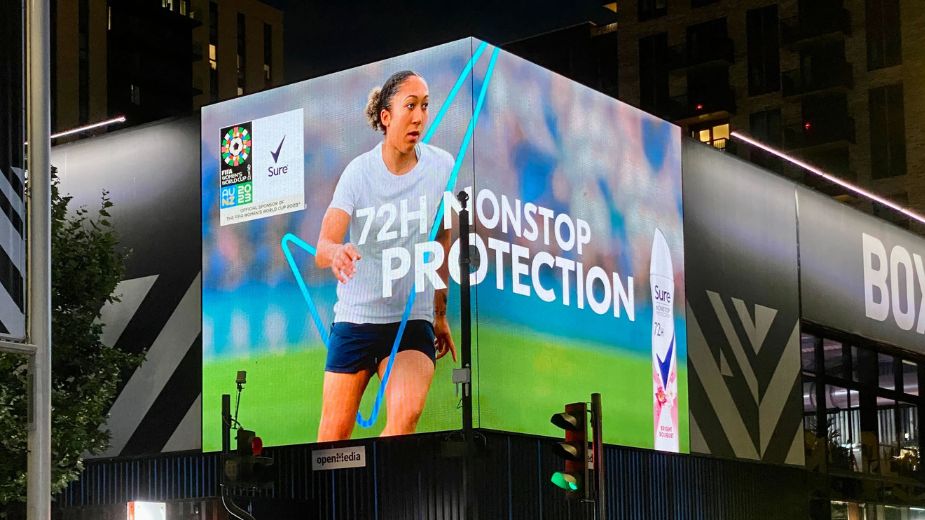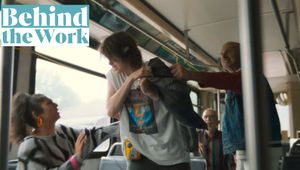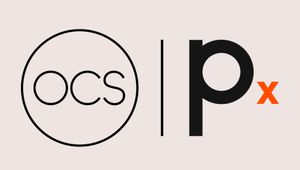
Why the Women’s World Cup is Personal for Unilever

For Willem Dinger, head of sport and entertainment partnerships for personal care at Unilever, the FMCG giant’s sponsorship of the Women’s World Cup 2023 is, well, personal. As well as leading all of Unilever’s sport and entertainment partnerships - a major corporate responsibility - he also has another job. He coaches his daughter’s under nine football team. He knows what supporting the women’s game means to young girls around the world.
“I’ve got firsthand experience, and that is why, obviously, I’m passionate about this. Because you realise that the training and the resource isn’t there when you compare it to some of the other programmes,” says WIllem, “I think you can make such a big impact by making sure they’ve got the right resources, training coaches, and the right amount of accessibility when it comes to different football teams.”
In May this year, Unilever’s personal care brands were announced as official sponsors of the 2023 FIFA’s Women’s World Cup. That sponsorship ties into the business’s commitment to social purpose and so, says Willem, the fit was natural.
“I think the biggest thing for us in Unilever, and particularly for personal care, is that our brands are in the business of building confidence in young girls around the world. We’ve got a huge amount of existing social impact programmes in place, through the Rexona Breaking Limits programme and the Dove Self-Esteem Project, which are specifically designed for making sport and football more accessible and more inclusive to millions of young girls and young football players around the world. We want to make sport and football specifically a lot more inclusive and accessible, so that we can help young girls be more active and more confident to continue.”
There’s certainly plenty of work to do. Research by the Football Association found that just 63% of English schools offer equal football coaching to boys and girls, that 60% of girls who play football in schools want to play more, and that 91% of girls who don’t have the opportunity to play, want to play.
Willem sees FIFA as a ‘sizeable and scalable platform’ that Unilever can use to reach these billions of people and help positively change the way that young fans and young girls can actively play football. “We see that as an incredible recipe for success,” says Willem.
The female game still lags someway behind its male counterpart, thanks to decades of underinvestment. However interest is gathering momentum, as the Women’s Euros in 2022 demonstrated. And this year’s Women’s World Cup is projected to reach two billion viewers, with 1.5 million tickets sold. So there is, says Willem, a win-win for Unilever to get involved in the women’s game at this stage - there is a substantial reach but lots of opportunity to make a mark and support something that is still in development.
“For us to partner with FIFA and the Women’s World Cup, and being able to use it as a positive agent of change to drive the development of female football, over the period of our contract and beyond, I think, is an amazing kind of partnership,” says Willem.
It’s also worth noting that the Unilever contract with FIFA goes beyond this tournament, covering the Men’s World Cup in 2026, as well as the next Women’s World Cup, and a Youth World Cup. The whole deal, then, should allow Unilever multiple avenues and demographics to tap into across its stable of brands. Earlier this month, for example, AXE was announced as official sponsor of the FIFAe esports finals, and will support that through a campaign called ‘Power Up Your Game with AXE’ . And, Willem notes, the Women’s World Cup itself has viewers across all sorts of demographics, creating opportunities for gender-neutral brands like Rexona (Sure in the UK, Degree in the USA and Canada) and Lifebuoy, as well as male-centric brands like Dove Men+Care.
“We’re looking at this strategically to make sure that it aligns with our broad portfolio of brands within personal care, and making sure that it’s doing a job to be done, depending on what the different asset portfolio is, and the job that brand needs to deliver for that particular year,” says Willem. “So, I feel that what we’ve strategically pulled together is enabling all of our different personal care brands to be able to activate FIFA as an always-on, evergreen activation platform.”
But the women’s game specifically is something that Willem sees as a deep commitment and investment. He believes the existing social impact programme can use football specifically as a lever to help touch millions of girls’ lives.
“We’ve just started the journey. This is a long term play for us. This is exactly why we’ve got two female World Cups built into our present contract. We really see the trajectory of female football being on such a sharp rise. There’s no denying that it’s still very much a male-dominated game, so we really want to shine a light on the development of female football at a grassroots level, an amateur level, and a youth level, while also making sure that we’re investing into the professional level as well.”

Unilever is bringing the partnership with FIFA and support of the Women’s World Cup across multiple platforms. There’s on-the-ground activity in Australia and New Zealand for Dove, Lux, Lifebuoy and Rexona, and experiential activations at the Stadium Australia. Globally, they’re running retail promotions across Latin and North America, Europe, Australia and New Zealand. On TikTok, they’re working with creators to share football challenges to help young people get more active at home. Rexona also recently launched an integration within ‘FIFA World’, FIFA’s space within the ‘Roblox’ metaverse.
What’s remarkable is that all of that has been pulled together in a matter of months. Unilever’s deal with FIFA was just signed this year, and only officially announced in May, so Willem’s team has been working full tilt to orchestrate that activity across the personal care brands, across markets.
And, by the time the next Women’s World Cup rolls around in 2027, Unilever’s partnership will be much more established and, Willem hopes, that support of women’s soccer will have created an even bigger platform and that it will have empowered even more girls and women to get involved in the game.
“I think we’re just scratching the surface at the moment. I think there were about 4.4 billion people watching the Men’s World Cup last year in Qatar. If we can get those sorts numbers and young girls participating in sport and football by 2027, then I think we’ll have done a really good job in terms of really shining a light, driving female football, and making sure that we’re investing properly behind the platform,” says Willem. “And ,what an amazing job the players are doing on the field at the moment!”















